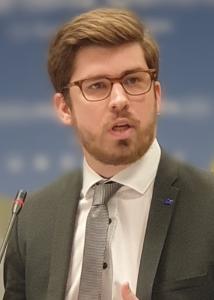This study examines the engagement of states on climate change in intergovernmental forums from 2021 to 2024, focusing on the European Union’s (EU) role and interactions with other states and groups. The report provides tailored insights into how the EU can reinforce its leadership and partnerships in climate diplomacy and dedicates attention to Germany’s contributions. Through an analysis of statements, voting patterns and thematic priorities across inter-governmental bodies like the United Nations General Assembly (GA), Human Rights Council (HRC), and UNFCCC COP, the report identifies states’ priorities and points out challenges and opportunities.
The findings reveal a complex landscape, where shared global challenges coexist with persistent geopolitical and value-based divisions. While multilateral forums emphasize cooperation to tackle climate change, differences in priorities, tone, and emphasis create friction. Developed countries, including EU member states, lead on themes like climate action and human rights integration, whereas developing countries emphasize climate finance, equity-driven solutions, and historical responsibility.
The EU emerges as a key actor in advancing global climate action, consistently advocating for the phasing out of fossil fuels, renewable energy transitions and human rights-based approaches. However, its similar role as the largest contributor of climate finance may be undercut by the more vocal demands of developing countries for climate finance and its rivals’ utilization of the principle of Common but Differentiated Responsibilities (CBDR) to criticize developed countries. Germany appears to prioritize human rights and was also a member of the core group presenting the request to the International Court of Justice (ICJ) to provide an advisory opinion on legal obligations in the context of climate change.
The study highlights evolving geopolitical dynamics that influence climate diplomacy. The shared commitment of the EU and the Group of Latin American and Caribbean (GRULAC) to human rights offers opportunities to strengthen coalition-building. A better reflection of understanding to the concerns of Small Island Developing States (SIDS) and other developing countries, particularly around climate finance, would also strengthen the EU’s position and capacity for effective multilateral engagement. This is especially critical in the face of China’s efforts to sow division and Russia’s attempts to spoil multilateral climate ambitions. The evolving stance of the US underscores the urgent need for agile and context-specific strategies.
Building on these findings, the report offers actionable recommendations to strengthen the EU’s role in climate diplomacy by addressing the challenges and opportunities identified:
- Acknowledge and support developing countries’ mitigation efforts.
- Prioritize mitigation solutions in the EU to protect its reputation for fighting climate change.
- Increase engagement on climate finance including by highlighting fulfilled EU pledges, supporting developing countries’ calls for loan restructuring and improved grant mechanisms, and advocating to address funding gaps for mitigation efforts.
- Seek a common EU position on debt relief and financial institutions.
- Advocate for human rights integration also at the UNFCCC COP and UNEA.
- Partner with GRULAC on initiatives advocating for human rights integration.
- Seek a common EU position on legal accountability, in anticipation of the ICJ’s advisory opinion and form a shared understanding with GRULAC and SIDS.
- Collaborate with like-minded developing countries to clarify the distinction between CBDR and human rights.
- Consider seeking a more nuanced clarification from the Office of the High Commissioner for Human Rights (OHCHR) on CBDR.
- Further investigate the roles of China and Taiwan and their influence on SIDS, as this may impact coalition-building.
- Maintain close contacts with US representatives to anticipate changes.
- Maintain Russia’s isolation to prevent spoiling of multilateral climate action.
The report’s insights align with the overarching goal of enhancing the EU’s climate leadership while navigating the complex interplay of geopolitical alliances and thematic priorities. By implementing these recommendations, the EU can bolster partnerships with developing countries, counteract divisive narratives in multilateral forums, and ultimately, achieve greater success in advancing equitable and ambitious climate action.
About this series
“European Union Climate and Energy” is a section with a series of reports and other publications designed to provide insight into the EU’s ambitions in the field of climate and energy policy development. Each publication in this series focuses on the EU’s global engagement in a clean transition or on how partner countries’ climate and energy ambitions relate to the EU. This series aims to provide a comprehensive understanding of the EU’s engagement strategies in the field of sustainable energy cooperation, climate change adaptation and mitigation as well as its partnership policies in the field of climate and energy.

Nicole Linsenbold





